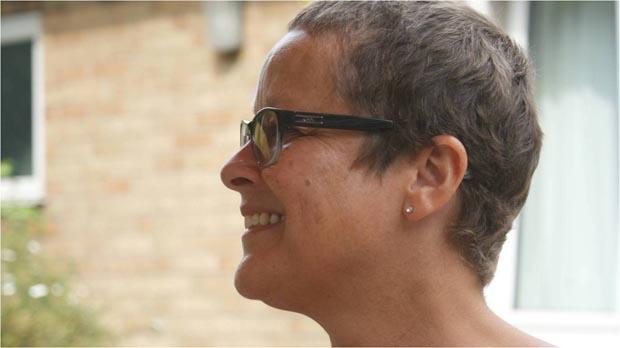
“I had treatment last year and I want to give something back.”
Please note - this trial is no longer recruiting patients. We hope to add results when they are available.
This trial is looking at whether women with early breast cancer can safely have trastuzumab (Herceptin) for 6 months instead of 12.
Women with early stage breast cancer may have chemotherapy as part of their treatment. They may have this before or after surgery. If their breast cancer produces high levels of a protein called HER2, they will also have trastuzumab. This helps to reduce the risk of the cancer coming back.
Women usually have trastuzumab for 12 months. But doctors are not sure if treatment needs to be this long. It may work just as well if you have it for a shorter period of time. Also, having trastuzumab for less time may reduce the risk of side effects, such as damage to the heart.
In this trial, the researchers will compare 12 months of trastuzumab with 6 months. Everybody taking part will have chemotherapy as well. The aims of the trial are to
Taking part in this trial will not delay or affect any other treatment you have, such as radiotherapy or hormone therapy.
You can enter this trial if you

You cannot enter this trial if you
 for at least 10 years
for at least 10 yearsThis trial will recruit 4,000 women. It is a randomised trial. The people taking part will be put into 2 treatment groups by a computer. Neither you nor your doctor will be able to decide which group you are in.
You will have the trastuzumab either at the same time as your chemotherapy or after your chemotherapy. This will depend on the type of chemotherapy you have and your hospital’s policy. If you have trastuzumab after your chemotherapy, it will start within 3 months of your last chemotherapy treatment.
You have trastuzumab either through a drip into a vein or as an injection under the skin (subcutaneous injection).
The researchers will get a sample of the tissue that is removed when you have your surgery for breast cancer. And they will also ask you to give a blood sample on one occasion anytime before, during or after chemotherapy. They will study these samples to learn more about breast cancer.
The trial team will ask you to fill out a questionnaire before you start trastuzumab, then every 3 months for a year and every 6 months in the next year. The questionnaire will ask you about any side effects you have had and about how you have been feeling. This is called a quality of life study.
You will see the doctors and have some tests before you start the trial treatment. The tests you may have include
 )
) or
or  )
)If you have trastuzumab at the same time as your chemotherapy, you will probably have the first dose on a different day to your first chemotherapy treatment. After that, you may be able to have both treatments on the same day, once every 3 weeks. But you might have to go to hospital on 2 separate days each time. This will depend on the policy at your hospital. After you finish chemotherapy, you will continue to go to the hospital every 3 weeks, until you finish your trastuzumab treatment.
If you have trastuzumab after your chemotherapy, you will have a hospital visit every 3 weeks for as long as you have treatment. If you are in group A, you will go another 18 times after you finish chemotherapy. If you are in group B, it will be 9 times.
You have a heart scan every 4 months while you are having trastuzumab. After you finish your treatment, you will see the trial doctors for follow up appointments
Common side effects of trastuzumab include
You are most likely to have these side effects during the first or second treatment with trastuzumab.
Trastuzumab can cause heart problems in some people, which is why you have regular heart scans. If it does affect your heart, the doctors will stop the treatment and any problems will usually get better.
A small number of people have an allergic reaction when they have trastuzumab. The trial team will monitor you very closely and will treat any problems straight away.
We have more information about the side effects of trastuzumab and general side effects of chemotherapy.
There is some more information about the PERSEPHONE trial on the Warwick Medical School website.
Please note: In order to join a trial you will need to discuss it with your doctor, unless otherwise specified.
Dr Helena Earl
Addenbrookes Hospital
Experimental Cancer Medicine Centre (ECMC)
NIHR Clinical Research Network: Cancer
NIHR Health Technology Assessment (HTA) programme
University of Cambridge
Warwick Medical School Clinical Trials Unit
If you have questions about the trial please contact our cancer information nurses
Freephone 0808 800 4040

“I had treatment last year and I want to give something back.”